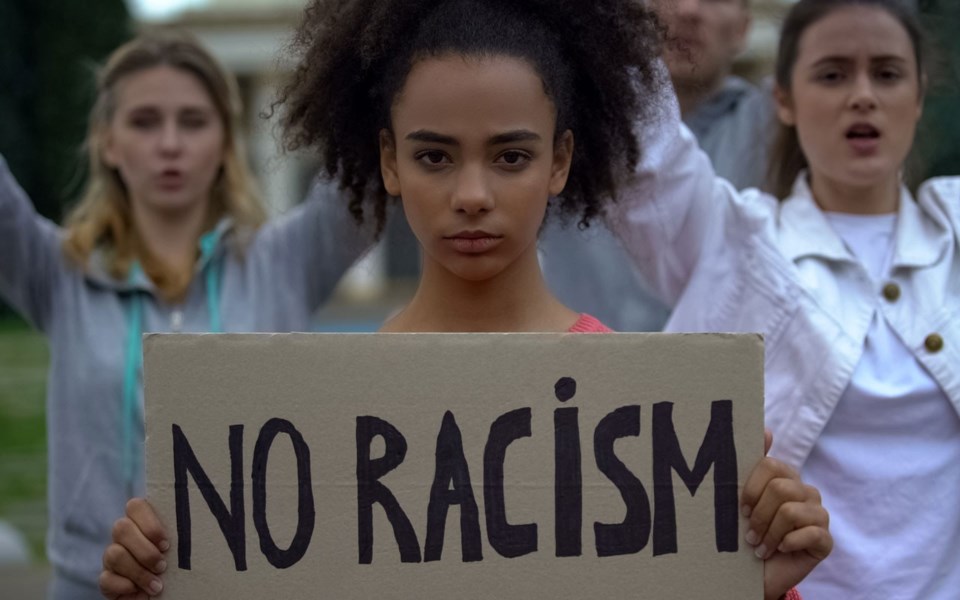Last month, Pique shared the story of a cyclist yelling at one of Whistler's earliest Japanese families to "go back to China" as he pedalled by on the Village Stroll.
The response online followed what has become a predictable pattern: anger, feigned shock, and vows that it doesn't reflect what our community is really about. These are all natural reactions to such a blatant act of cowardice—but taken on their own, they don't really amount to much more than a signalling of what side you stand on.
Many of us are guilty of it to some degree; just yesterday, I posted a link to Black Lives Matter urging others to donate what they could afford, as I did. Now, is my minor contribution and public show of support going to reverse the tide of centuries of systemic oppression? Of course not. But did it give me a small sense of relief that I did something in the face of such a complex, multifaceted issue? Sure. But let's face it: Being against racism in 2020 is the absolute bare minimum of basic human decency; it's not really a brave stance to take—especially if it's relegated to social media—and ultimately rings hollow if not followed up with some form of action.
So what exactly does that next step look like? For many of us feeling hopeless this weekend watching clip after clip of police south of the border violently tamping down protesters, of peaceful citizens being fired upon by the National Guard for the crime of standing on their front stoop, of my fellow journalists being brutalized and arrested for performing their civic responsibility, it's tough to know the answer to this question. (Before you scream "But what about the looters!"—there will always be opportunists of all stripes whenever society descends into chaos, and they don't necessarily reflect all the other peaceful protesters demanding change, just as Michiganders rushing state buildings armed with assault rifles because they want to get their hair cut again doesn't necessarily reflect all white people. And, while I'm not justifying those protesters that have resorted to violence, wouldn't you be mad, too, if you had to keep watching Black Americans needlessly die at the hands of those that are sworn to protect you generation after generation?)
I'm not going to pretend like I have some sort of magic Tolerance 101 playbook, because the reality is the onus lies on us to identify how and where to step up, based on our individual circumstances. I do know that, coupled with collective action like the rallies we're seeing sprout up across North America, it also requires a more personal sacrifice. After all, you can't say you're against a system of oppression if you are unwilling to reckon with your position within it. More importantly, we have to be willing to risk that position in order to amplify the voices of those without the same privileges we enjoy.
I think a good place to start is being willing to have the kind of uncomfortable conversations about race we've been reluctant to have for far too long. There is a tendency among some white Canadians, whether due to our penchant for politeness, our inherent guilt at Canada's long history of racism that far too often gets swept under the rug, or both, to avoid wading into these discussions for fear of saying the wrong thing. I would argue caring more about the optics of a dialogue that's desperately needed than the actual issue you're supposed to be addressing is sort of missing the point. You're going to mess up. You're not always going to say the perfect thing. But a willingness to learn and work through these complicated issues is the absolute least we can do.
The reality is we all have biases, and, at least from an evolutionary standpoint, they can be useful: biases help us to make quick associations in a world that is often overwhelming. But we no longer live in the kind of tribalistic society that requires these split-second judgements. So simply having these biases does not make you a bad person; it's the weight you attach to them. You have to be open to someone challenging your assumptions. Ultimately, we can't address these biases until we can acknowledge they exist, and that can only come through a commitment to educating yourself, and, crucially, a willingness to at least try to understand the totality of someone else's experience, even and especially if that experience differs greatly from our own.
So I applaud those who have showed up to fight racism and inequality in whatever shape that takes, but we must remember that showing up is only the first step. If you really want to be an ally, now is when the real work begins—so keep going.




